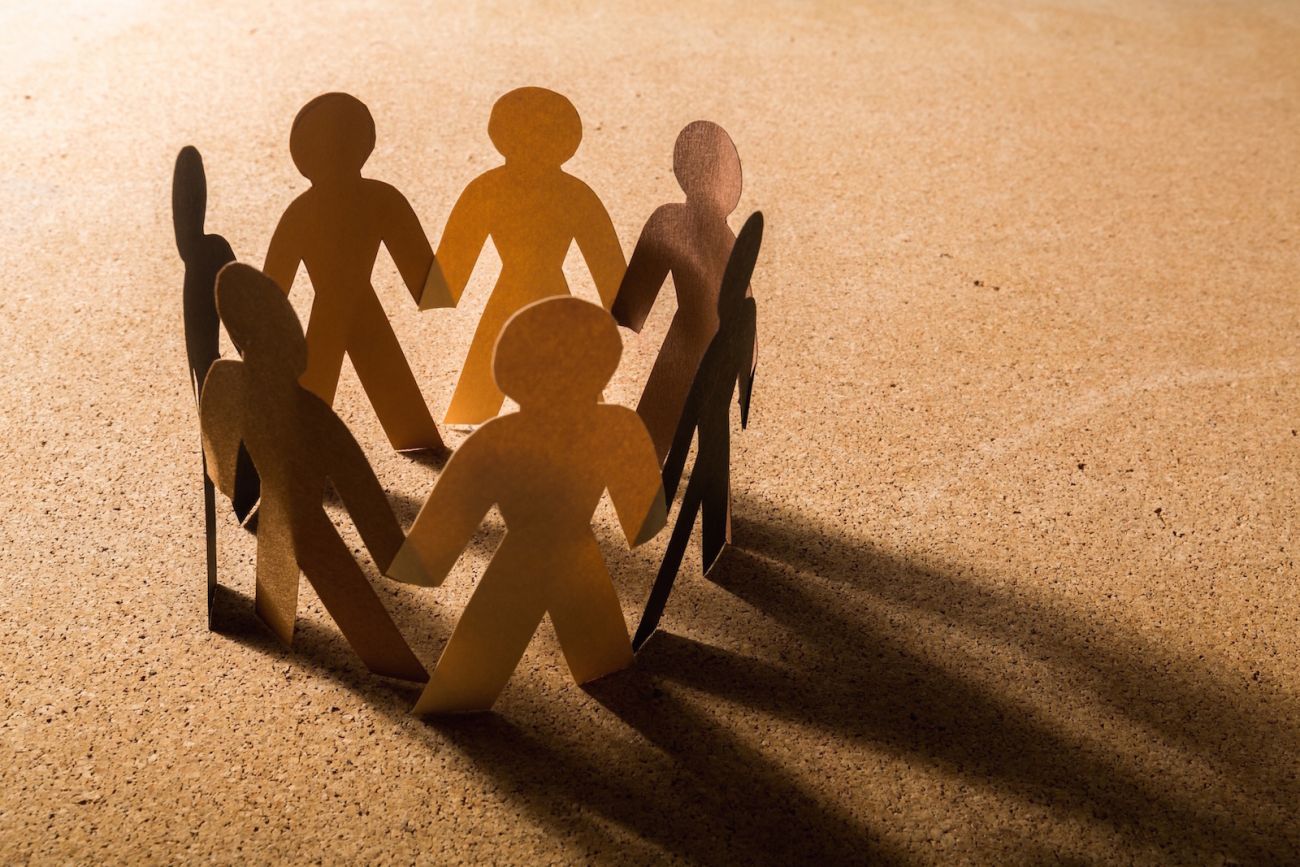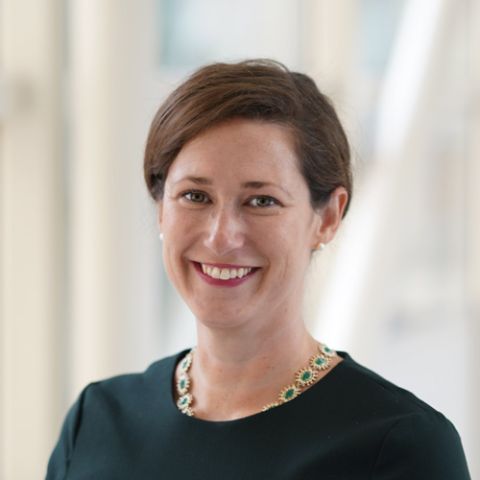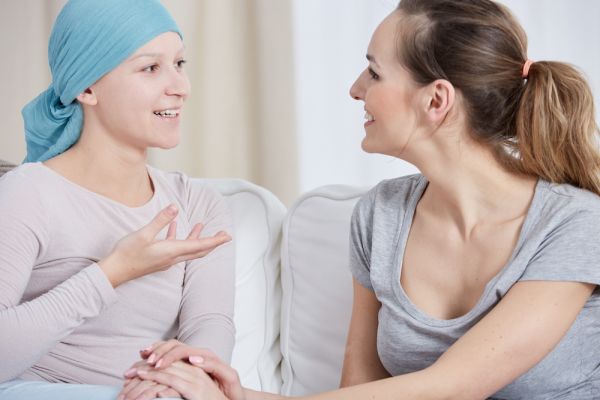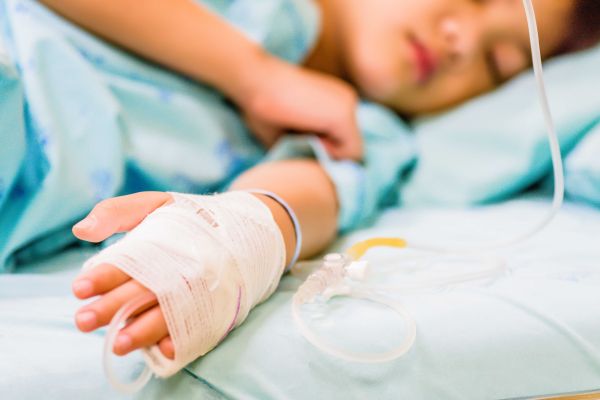When you or someone you love is diagnosed with cancer, the shockwaves that follow the diagnosis can disrupt life, work and relationships. Cancer patients and their caregivers often experience an outpouring of support around the initial “diagnosis crisis,” but this often drops off soon after — long before treatment ends.
If you are a cancer patient, telling your friends, family and coworkers that you have cancer, talking about treatment and its challenges, and asking for help can be difficult, but research suggests that having a good support system during treatment can be extremely helpful and even improve cancer outcomes.
“Patients who have a good social support system tend to have better outcomes,” says Elizabeth Bouchard, MA, PhD, Associate Professor of Oncology in the Department of Cancer Prevention and Control at Roswell Park Comprehensive Cancer Center. “In the research that we’ve done so far, we’ve tried to understand what's important about the support network. Is it emotional support from family and friends? Practical advice from your health care team or others who’ve been there?
"What we’ve found is that peer support, which includes help and advice from other people who have had similar experiences with cancer, either as patients or caregivers, is a very helpful kind of support and an important part of a good cancer support system.”
Cancer Community
Some cancer patients and caregivers have said that being diagnosed with cancer or caring for a loved one with cancer feels like being forced into a club that no one wants to join, but seeking out others who are living with cancer can be both helpful and therapeutic. “A cancer patient might feel like their friends and family don't really understand what they are going through,” says Dr. Bouchard, who studies the role of social support in health care outcomes. “But in a group of other cancer patients, they have a different experience, because everyone there is dealing with the same thing. Suddenly they’re not alone.”
Never miss another Cancer Talk blog!
Sign up to receive our monthly Cancer Talk e-newsletter.
Sign up!Building a Support System
If you’re a cancer patient or caregiver in need of support, you can look to those who have supported you in the past, but it may also be helpful to build a new network of peer support.
Here are some things you can do to build a stronger support system:
- Tell your family and friends about your diagnosis and treatment. Only you can decide whom to tell and what information you are willing to share, but talking to friends, family and other members of your support network can help you manage the challenges of cancer and its treatment and start thinking about what’s ahead. Keep in mind that you will likely get a wide range of responses. Some people might be very receptive and offer their unconditional support and encouragement, whereas others might feel uncomfortable and not know what to say, perhaps out of fear of saying the wrong thing.
- Ask for help, and keep reaching out. In all likelihood, your friends and family really do want to help, but they don’t always know what to say or do. Don’t be afraid to ask for the specific help you actually need. For example, if your neighbor offers to bring you a casserole but what you really need is someone to mow your lawn, then ask for that specific form of help. If what you really need is childcare during your appointments or a week of meals delivered, ask a trusted family member or friend to come up with a schedule and delegate those tasks among members of your support network. If you’re not getting the support you need, it’s OK to be disappointed and frustrated, but keep reaching out.
- Connect with fellow patients or caregivers. Support from others who are also facing cancer is available both in person and online. The support groups offered at Roswell Park provide an opportunity for patients, caregivers, friends and family to ask questions, share concerns and information, and relate experiences about coping with cancer and its treatment.
To find an in-person support group or activities for cancer patients, visit our website or call 1-800-ROSWELL (1-800-767-9355). Also check out the patient calendar for upcoming events.
Online support is generally available 24/7 from the comfort of your home or convenience of your smartphone. Search online for groups, or look for them on popular social media sites. For example, Cancer Connect is an online community that provides information and support for cancer patients and caregivers. (Click here to join.) Facebook offers several support groups for cancer patients and caregivers. One of these groups, Momcology, allows parents and caregivers of children with cancer to connect, support one another and find helpful information, and this group also offers in-person peer programs, such as retreats and workshops.
How to Support People with Cancer
If your friend or family member has cancer or is caring for someone who does, here are some ways you can help:
- Educate yourself. The more you know about your loved one’s disease and treatment, the better equipped you’ll be to ask the right questions and offer support that’s helpful.
- Ask questions. Some people are so fearful of saying the wrong thing or invading someone’s privacy that they say or do nothing. Don’t be afraid to ask how their treatment is going, how they’re doing or what they need from you.
- Offer your support, and keep checking in. Cancer and its treatment can take over someone’s life, leaving little room for important everyday tasks like taking care of children, paying bills, cooking or cleaning. Offer to help in ways that you feel comfortable, be it accompanying them to doctor’s appointments, shopping for groceries so that they don’t have to, or buying them a gift card they can use at their favorite takeout restaurant. Because a cancer patient or caregiver may feel uncomfortable imposing on others in response to vague offers of support — such as “If there is anything I can do, please let me know” — try suggesting specific ways in which you are able to help. For example, if your children go to the same school, offer to drive or pick the children up on certain days. If you are neighbors, offer to take the trash and recyclables to and from the curb on garbage day.
For information about Roswell Park’s support services for cancer patients and caregivers, including our Resource Center for Patients and Families, visit our Supportive Services page.



